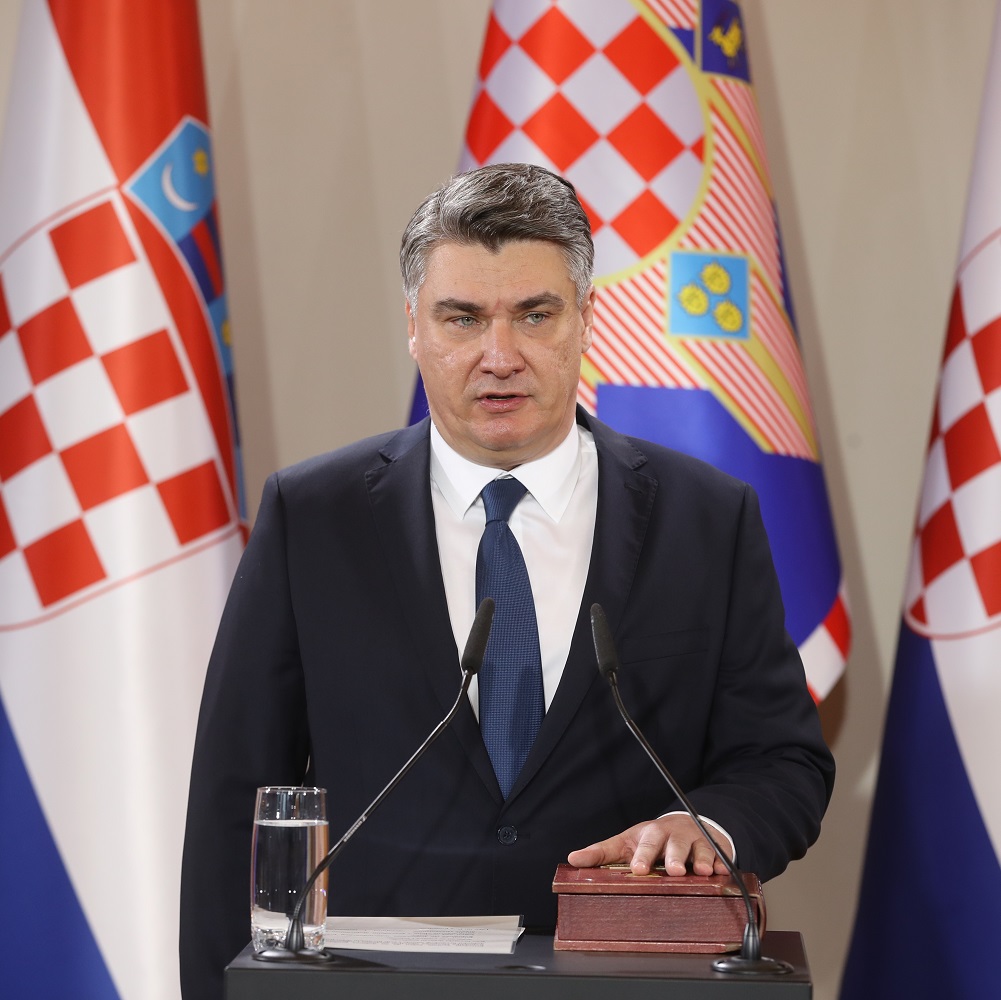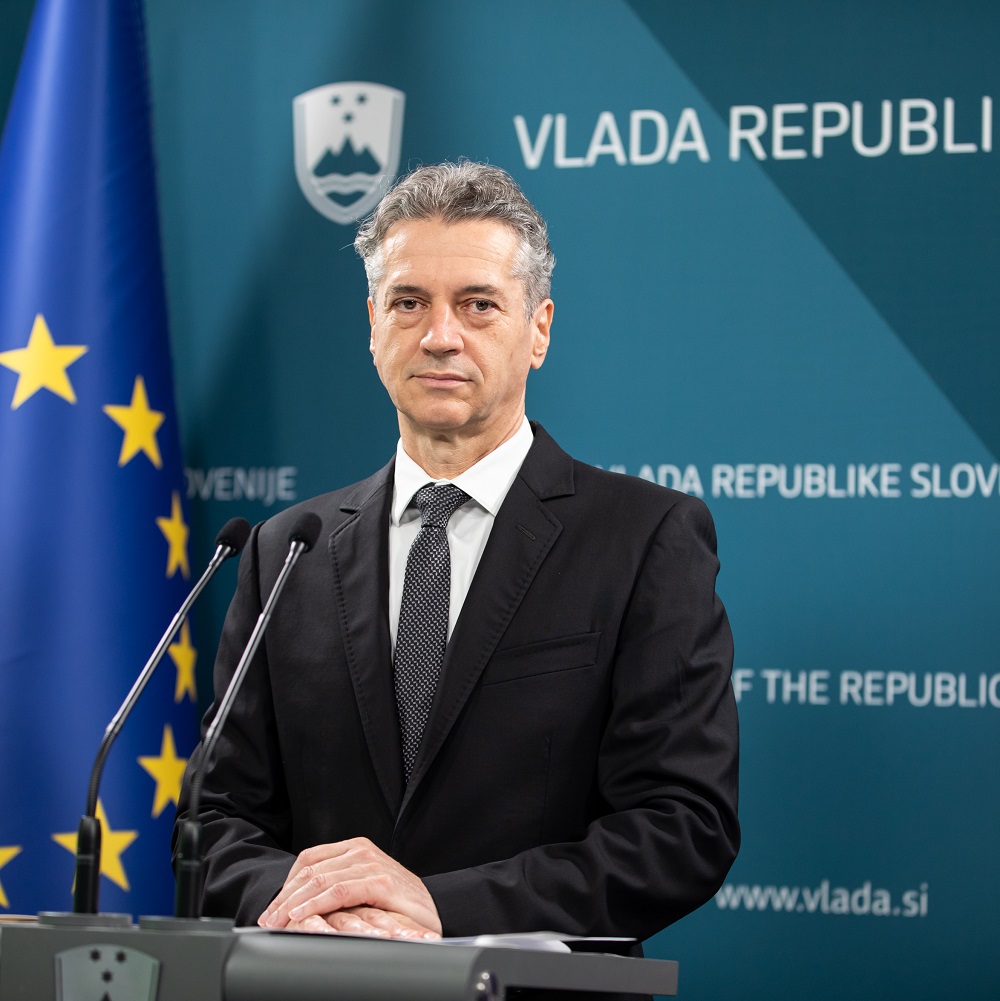
Address by the President of the Republic Zoran Milanović at the 78th Session of the United Nations General Assembly
by Zoran Milanović
Mr. Vice President, Excellences, Ladies and Gentlemen, It is my particular honour to address this august body. I would like to use this opportunity to congratulate you on being elected to your esteemed position and I wish you much success in your work during these challenging times. The world we live in today requires joint, global and concerted efforts as a key to success in addressing serious global crises. We strongly believe that we have to strengthen the multilateral system based on international law, and make sure it is effective and fair, able to endure and deliver results that will serve to achieve our common goals, commitments and a better future for the people and planet. We need to safeguard the role of the United Nations as the centre of global cooperation. We are also hopeful that genuine efforts will be invested in the reform of the Security Council, our main instrument for securing global peace and security. In 2015, we adopted the 2030 Agenda for Sustainable Development also on the basis of the consensus that to transform our world we need to realize that „sustainable development cannot be realized without peace and security; and the peace and security will be at risk without sustainable development.“ In 2023, at the mid-point in the implementation of the 2030 Agenda, the assessments of the Global Sustainable Development Progress Report show that the efforts to achieve that synergy so far have proved insufficient. Time to reinvigorate our political commitments to the full and efficient implementation of the 2030 Agenda and its Sustainable Development Goals is irreversibly running out. In the meantime, the necessary boost came with the UN Secretary-General`s vision offered in “Our Common Agenda” as an overarching roadmap in fighting the multiple crises. The Preparatory process for the next year’s Summit of the Future, along with its outcome the Pact for the Future, represents a unique opportunity to strengthen national and international governance and to make it more sustainable and resilient to future crises and shocks, safeguarding the planet for future generations. The international financial system is increasingly unable to adequately and efficiently respond to the challenges at hand. More needs to be done to update and upgrade the global financial infrastructure so it becomes more adapted to the needs of the world. Most notably, we need to scale up development and climate finance. In this sense, we support the efforts by the international financial institutions to review their structures and operating processes, with a view to reform in order to meet the challenges of the 21st century. Peace is not maintained by itself. Investment in conflict prevention is far more cost effective than investing in conflict resolution and recovery after the fact, post factum. This is why prevention of conflict and sustaining peace should be at the centre of the framework of the New Agenda for Peace, intertwined with a renewed commitment to multilateralism, global solidarity and trust. Croatia, as Chair of the UN Peacebuilding Commission (PBC) for 2023, strongly advocates its strengthening and enlarging of both its geographical and thematic scope. We support the Secretary General’s call for the universality of conflict prevention and sustaining peace, and the development of national conflict prevention strategies. The PBC could review these strategies, helping to mobilize resources for their implementation when needed. The PBC should also work more closely with international financial institutions and regional actors, forming the Sustainable Peace Network. In addition to its advisory powers, the PBC could also be vested with decision-making powers, enabling it to establish UN civilian missions upon the request of countries concerned, helping to address the root causes of instability. In this regard, the 2030 Agenda for Sustainable Development and its Sustainable Development Goals can be an excellent prevention tool by bringing prosperity and inclusion while leaving a safer place for future generations. According to the Sustainable Development Report 2023, Croatia’s performance in implementing the Sustainable Development Goals was assessed among top ranks. However, a lot of work is still in front of us. Croatia has a large natural heritage that it wants to preserve for future generations through the implementation of the SDGs. While accepting the clean energy transition, Croatia is taking a number of measures to alleviate the transition shock in the rejection of fossil fuels, and to ensure a fair transition and prevent energy poverty. With regard to biodiversity, Croatia is committed to work jointly for the development and full implementation of an ambitious and transformational Kunming-Montreal global biodiversity framework. Furthermore, we firmly believe that protecting, restoring and sustainably using biodiversity is essential for pandemic prevention and promotion of the “One Health Approach” which needs to be included in future prevention plans. We are also committed to working together to intensify cooperation in protecting the marine environment and combatting plastic pollution. If we want healthy oceans and seas, our ambition needs to be high and ocean protection stepped up significantly. Croatia welcomes the landmark adoption of the “Treaty of the High Seas” on ocean biodiversity (BBNJ). The successful negotiation of the BBNJ Agreement is the most recent proof of devoted multilateral work and presents not only a milestone in conserving marine biodiversity of nearly two-thirds of the world’s oceans, but also a triumph for multilateralism. Today, Croatia proudly joined the first tier of countries that have signed the Treaty, and commits to ratify it as soon as possible. We call on other countries to do so as well to enable its swift entering into force and to start its effective implementation. As a member State of the EU Croatia has already committed itself politically and legally to contribute in making Europe the first climate neutral continent by 2050. By further pursuing that course and by accelerating development of renewables and increasing green investments, we believe we can turn the current crisis into a new chance for our economies. Here I will mention as an example one such project that can boost new growth of the European economy based on decarbonisation and clean industry. It is the project “North Adriatic Hydrogen Valley,” which encompasses the Italian region of Friuli-Venezia Giulia, Slovenia and Croatia. By putting clean energy transition in the heart of the fight against climate change on the global level, we should not forget that the most vulnerable communities, which have historically contributed the least to climate change, are often the ones most and the worst affected – both by the climate conditions and by the costs of the green energy transition as a remedy. The establishment of a Loss and Damage Fund to help vulnerable countries cope with the destructive impacts of climate change at COP27 marked a historic breakthrough in this respect. How we go about this issue at the Climate Ambition Summit and COP28 will be a true test of trust and solidarity among nations and will impact current and future generations. Creating a world of peace and security that respects human rights and promotes social progress is the very foundation of the United Nations. The amount of human rights violations and humanitarian crises around the world demonstrates that more must be done in terms of atrocity prevention and the operationalization of the responsibility to protect. Croatia is honoured to contribute to this cause by serving as co-chair of the Group of Friends of R2P in New York along with Costa Rica and Botswana. The Croatian Government remains committed to determining the fate of 1806 persons that went missing during our Homeland War in the 90s. Based on such a tragic national experience, we continue to render our unwavering support to all efforts to provide answers to those still suffering the anguish of uncertainty, anywhere in the world. We remain committed to combating hate speech, advancing the rights of women and children, protecting minorities, and the abolition of the death penalty. Gender equality is a foundation of a peaceful, prosperous and sustainable world. In that vein, we highlight the importance of education and equal opportunities for girls and boys. We will continue advocating against discrimination and hate speech, including antisemitism. Croatia continues to attach utmost importance to its immediate neighbourhood in Southeast Europe. Issues of the past and war legacy, like resolving remaining cases of missing persons and engaging in meaningful cooperation in handling war crimes without discrimination and in line with international standards, access to archives, as well as other unresolved and highly sensitive issues must be fully tackled. We actively support the European perspective of our close neighbour Bosnia and Herzegovina and have warmly welcomed the recent EU decision on the granting to B-H the status of EU candidate country. We continue to advocate electoral reforms that would ensure legitimate representation of all constituent peoples, in particular Bosniaks, Croats and Serbs, at all levels of the Government, which is in our view essential for the future stability and prosperity of the country. We are very concerned about the latest developments in Kosovo–Serbia relations and would like to encourage measures for the de-escalation of tensions. Similarly, these two countries need to focus on the normalization of relations and deliver on their commitments and start implementing what was agreed on this year in Brussels and Ohrid. We continue to advocate universal recognition of the Republic of Kosovo and its right to existence as an equal member of the community of nations. It is in our interest to promote stability and further development of this region, as well as the process of European integration, which we believe remains crucial for the future prosperity of our neighbours, and which we are hopeful will be accelerated in the coming years. Thank you.












